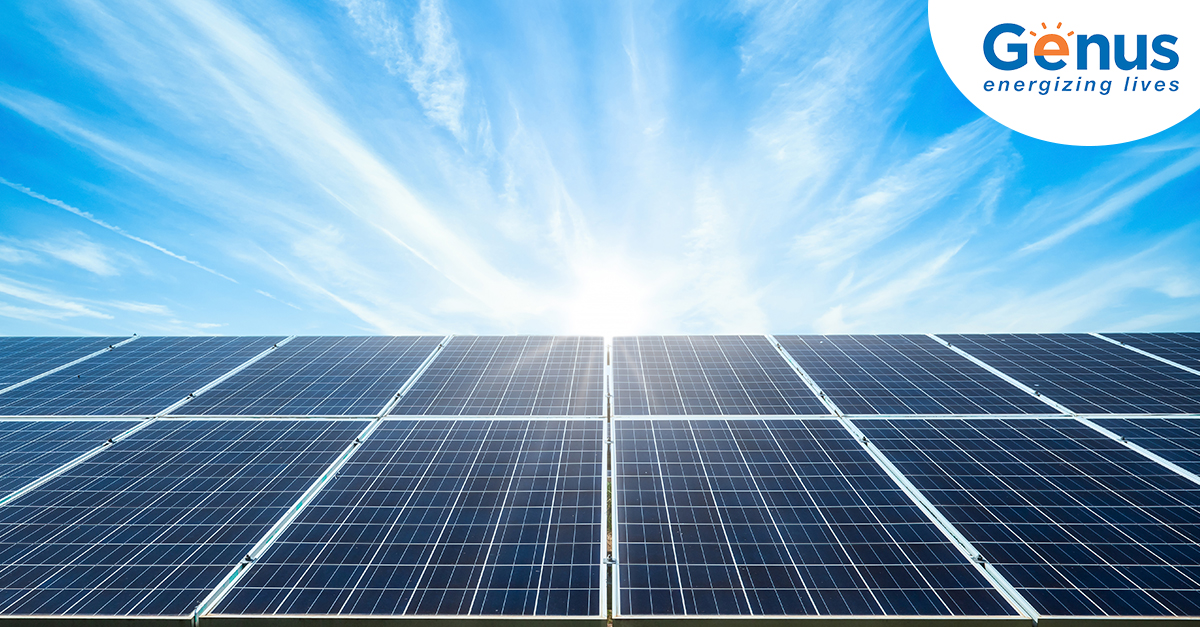
Investing in solar power is something that companies in India have been considering for quite some time now. Both big and small businesses work tirelessly to keep their costs under control, after all. And energy or electricity costs account for a massive share of their total expenses. Moreover, companies these days realize the power of going green too, as it boosts their socially responsible brand image. All in all, solar energy steps in to meet all these goals with ease as the long-term cost benefits are impressive and the energy source is renewable, clean and non-polluting. So, if you still haven’t embraced the sun’s energy, read on to know about its 5 top benefits.
1. Decrease in Overhead Expenses
Going solar for companies can translate into the biggest benefit of reducing overhead costs. This is because you probably need power to run everything from fans and lights to computers and other machines or electrical tools. Now, by going solar, you will be able to depend less on the grid and fluctuating power tariffs. You won’t be affected by the changing costs of non-renewable fossil fuels too. Depending on the number of solar panels you choose to use or by how much you wish to replace your grid’s supply, you can cut overhead costs significantly. Also, as you will be generating your own power, you will be in control of the costs. This will give you more peace of mind.
Also Read: Avoid These 10 Mistakes To Keep Your Utility Bills Low
2. Reliable Power Supply
India is still one of those countries that witnesses frequent power outages in many places. However, investing in solar energy means you will always get a reliable and steady supply, no matter what the grid supply is. Since our country receives ample sunlight for most part of the year, your panels can capture sufficient solar energy for converting to electricity.You can store the electricity generated in batteries (off-grid systems) or share the excess electricity to earn credit via “net metering” policy at the end of the year (grid-connected solutions). Either way going solar will ensure that productivity is not affected due to poor and erratic power supply.
3. Ease of Maintenance
This is another good reason why it makes sense to invest in solar for companies. Solar panels manufactured by experienced and well-known brands are extremely efficient and are essentially a one-time investment. They are made of the best material available and last for years, in fact 25 years, if you choose wisely. Just make sure that you get the panels installed by experts who will assess your power needs, installation area available and budget before going ahead with the process. Reputed manufacturers also quality-check these panels stringently and in-house before releasing them in the market. Especially, if your solar energy system involves no batteries, you will need to provide minimal maintenance.
4. Long-term Savings
Investing in solar energy means saving in the long run, which any business aims at, to become more profitable. Though the initial cost of solar panel installation is generally high, the returns on your investment keep increasing with every passing year. Since the maintenance cost is minimal as well, your company gets to set aside more savings to ensure a positive cash flow. This is especially helpful during a crisis or when you need urgent funds to tide over an emergency situation. Ample long-term savings can also make you less dependent on loans.
5. Eco-friendly and Good for CSR
By investing in solar energy, your business can become more eco-friendly and cause less pollution that is otherwise generated by fossil fuels. You can make the planet a better place for the future generations, reduce your carbon footprint, and also meet your Corporate Social Responsibility (CSR) goals better. This will earn you special recognition as a “green” business and make you more attractive to clients, partners and investors.
Also Read: How Energy Storage Could Revolutionize Industries in The Next 10 Years?
Conclusion
To wrap up, investing in solar energy is the perfect move for companies that want to save money now and in the future, reduce overhead costs, receive stable and sufficient power at all times, and become environment-friendly and socially responsible.
